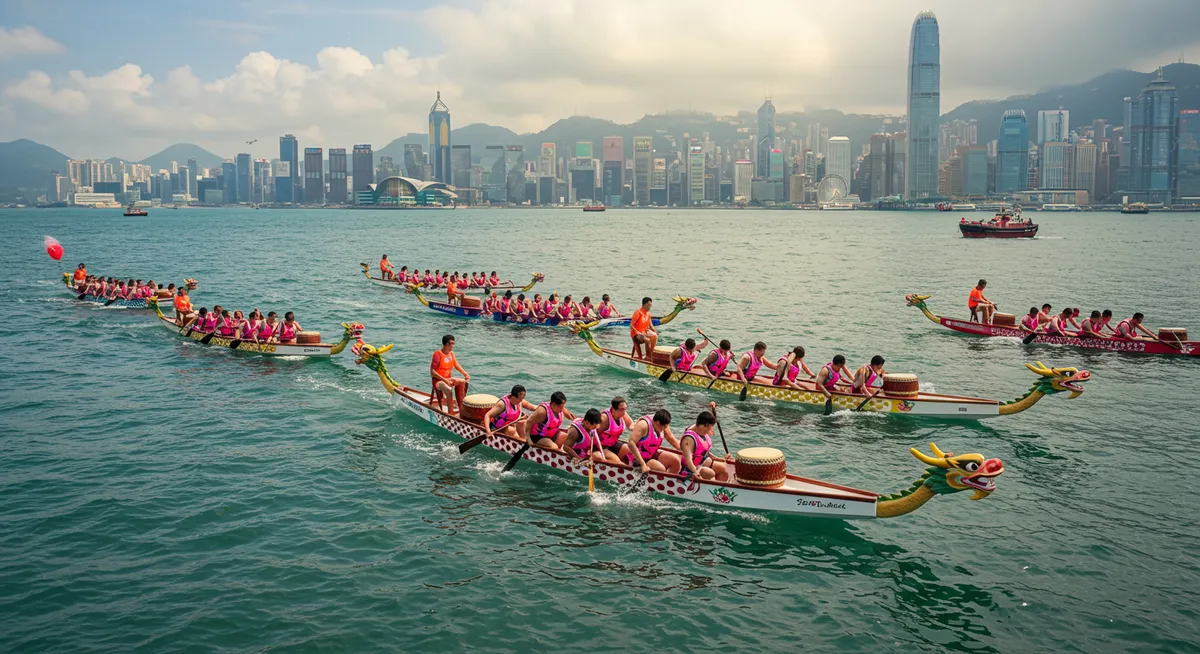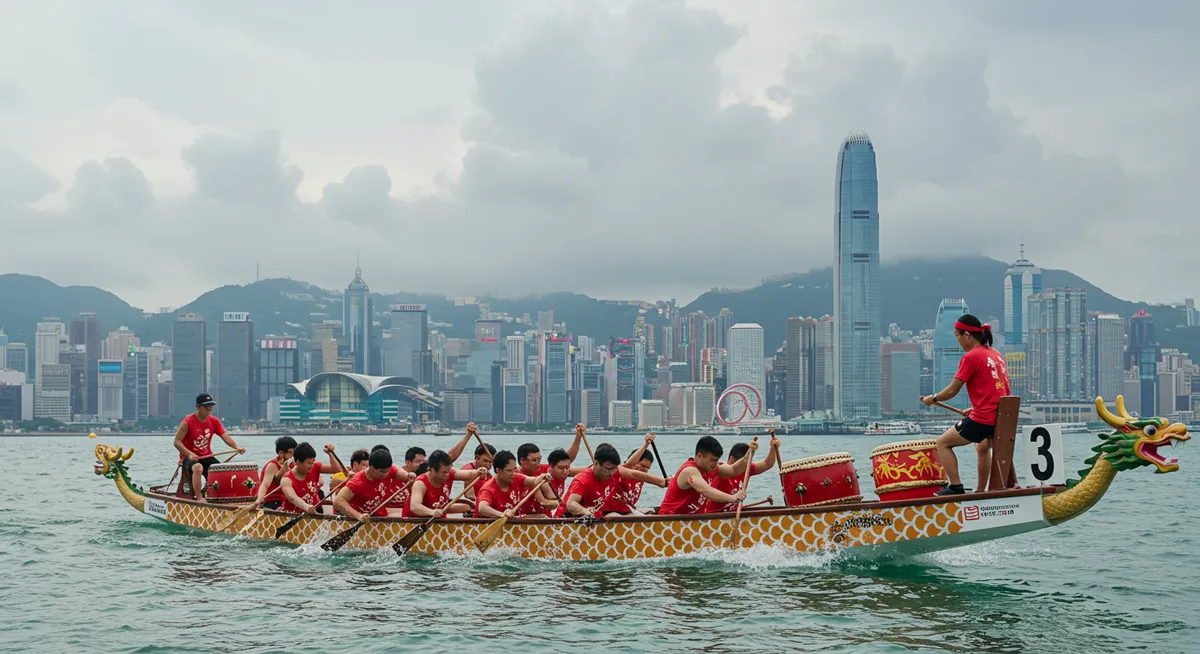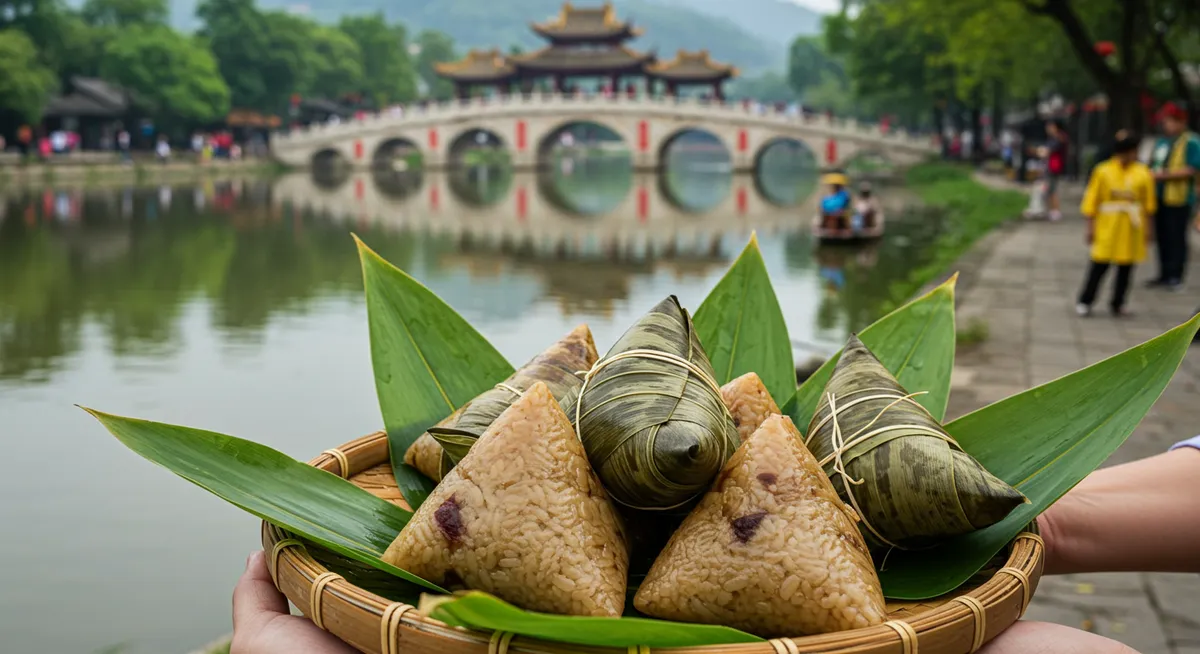Dragon Boat Festivals Across Asia | Racing Traditions & Rice Dumplings

Dragon Boat Festivals: Ancient Traditions and Thrilling Races Across Asia
Dragon Boat Festivals represent one of Asia's most widespread and visually spectacular traditional celebrations, featuring colorful racing boats, distinctive culinary traditions, and deep connections to ancient legends. Known by different names across the region—Duanwu in China, Tuen Ng in Hong Kong, Dano in Korea, and Tết Đoan Ngọ in Vietnam—these celebrations share common features while expressing distinctive regional traditions. For travelers seeking vibrant cultural experiences, dragon boat races offer extraordinary opportunities to witness living heritage traditions that have united communities for over two millennia.

Historical Origins and Cultural Significance
The Dragon Boat Festival's origins combine historical events with mythological elements that have evolved over thousands of years:
The Legend of Qu Yuan
The most widespread origin story centers on a legendary Chinese poet and statesman:
- Historical Figure: Qu Yuan (340-278 BCE) was a minister and poet in the ancient state of Chu during China's Warring States period
- Political Tragedy: After being exiled due to political intrigue, Qu Yuan drowned himself in the Miluo River upon learning of his kingdom's defeat
- Community Response: Local villagers raced boats to retrieve his body and dropped rice balls into the river to prevent fish from consuming it
- Cultural Evolution: These acts of reverence evolved into the traditions of dragon boat racing and eating zongzi (rice dumplings)
Alternative Origin Theories
Different regions maintain additional explanations for the festival:
- Dragon Worship: Some scholars connect the festival to ancient dragon deities believed to control rainfall and water
- Summer Solstice: The timing near the summer solstice suggests pre-historic connections to seasonal agricultural practices
- Wu Zixu Legend: In some southern regions, the festival commemorates Wu Zixu, another loyal minister who suffered a tragic fate
- Pest Prevention: Traditional practices during the festival were believed to ward off disease and pests during the summer months
Dragon Boat Festival Across Asia
While sharing common elements, the festival showcases distinctive regional expressions:
China (Duanwu Festival)
In its country of origin, the festival combines multiple traditions:
- Official Holiday: Recognized as an official public holiday and important cultural heritage
- River Traditions: Major races on rivers in southern provinces like Guangdong, Guangxi, and Fujian
- Zongzi Varieties: Regional recipes create distinctive sweet and savory rice dumplings wrapped in bamboo leaves
- Symbolic Herbs: Homes are decorated with calamus, mugwort, and other aromatic plants believed to ward off evil
Hong Kong and Macau
The former colonial territories host some of Asia's most spectacular races:
- International Races: Hong Kong's Dragon Boat Carnival draws teams from around the world to Victoria Harbour
- Stanley Beach: The traditional race venue features vibrant competitions with elaborate ceremonies
- Modern Evolution: Corporate-sponsored teams and international participation have transformed traditional races
- Cultural Fusion: Events blend traditional ceremonies with contemporary festival elements

Taiwan
Taiwan maintains some of the most traditional observances:
- Lukang Dragon Boat Festival: One of the oldest continuous celebrations with distinctive local customs
- Taipei Dragon Boat Festival: Major races on the Keelung River draw massive crowds
- Ceremonial Elements: Stronger emphasis on ritual offerings to river deities before races
- Indigenous Influence: Some regions incorporate aboriginal cultural elements into celebrations
Korea (Dano Festival)
Korea's variant emphasizes different cultural aspects:
- Agricultural Focus: Traditional ceremonies for good harvests are central to Korean celebrations
- Gangneung Dano Festival: Recognized as UNESCO Intangible Cultural Heritage with unique local traditions
- Swinging Competitions: Women participate in traditional swinging competitions during the festival
- Ssireum Wrestling: Traditional Korean wrestling matches are featured alongside boat races
Japan (Kawabiraki)
Japan's adopted version reflects local cultural adaptations:
- Regional Variations: Particularly popular in Nagasaki and other areas with historical Chinese influence
- Summer River Festivals: Incorporated into broader summer water celebrations
- Distinctive Boat Designs: Japanese dragon boats often feature modified designs reflecting local aesthetics
- Contemporary Sport: Modern competitive aspects often emphasized over traditional ceremonies
Southeast Asia
Various countries across Southeast Asia maintain related traditions:
- Vietnam (Tết Đoan Ngọ): Features distinctive rice cakes (bánh ú) and agricultural purification rituals
- Singapore: Major races at Marina Bay combine Chinese traditions with multicultural participation
- Malaysia: Celebrations in Penang and other areas with significant Chinese populations
- Thailand: Adapted traditions in communities along the Chao Phraya River
Key Festival Elements
Certain traditions unite Dragon Boat festivals across the region:
Dragon Boat Racing
The central activity features distinctive vessels and race formats:
- Boat Design: Long, narrow vessels decorated with dragon heads and tails, typically seating 20-22 paddlers
- Team Composition: Paddlers, a drummer who keeps rhythm, and a steersperson who guides the boat
- Race Formats: Competitions ranging from short sprints (200-500 meters) to longer endurance races
- Ceremonial Aspects: Traditional eye-dotting ceremonies to "awaken" the dragon boats before racing
Festive Foods
Distinctive culinary traditions mark the celebration:
- Zongzi/Rice Dumplings: Glutinous rice filled with various ingredients and wrapped in bamboo or reed leaves
- Regional Variations: Sweet versions with red bean paste in northern China, savory meat fillings in southern regions
- Realgar Wine: Traditional alcoholic drink believed to ward off evil in some regions
- Seasonal Foods: Eggs, seasonal fruits, and special cakes with local significance

Protective Rituals
Traditional practices to ensure health and prosperity:
- Herb Gathering: Collecting protective plants like mugwort and calamus to hang in homes
- Perfume Pouches: Children wear small sachets containing aromatic herbs
- Egg Balancing: The belief that eggs can be balanced on end at noon during the festival
- Water Rituals: Ceremonial washing in rivers or with special herbal water for purification
Experiencing Dragon Boat Festivals as a Traveler
For visitors seeking to experience these vibrant traditions, several key destinations offer exceptional opportunities:
Premier Festival Destinations
These locations host particularly spectacular celebrations:
- Hong Kong: International Dragon Boat Carnival at Victoria Harbour and traditional races at Stanley Beach (June)
- Taipei, Taiwan: Races on the Keelung River with strong traditional elements (June)
- Guangzhou, China: Major celebrations in the heart of Cantonese culture where racing traditions run deep
- Singapore: Modern races at Marina Bay combining tradition with contemporary sporting elements
- Gangneung, Korea: UNESCO-recognized Dano Festival with unique Korean traditions
Visitor Participation Opportunities
Beyond spectating, visitors can engage with the traditions:
- Tourist Teams: Many locations offer opportunities for visitors to join practice sessions or special tourist boats
- Festival Workshops: Zongzi-making demonstrations and cultural activities open to visitors
- Photography Vantage Points: Recommended locations for capturing the vibrant racing action
- Food Tours: Specialized culinary experiences focused on festival delicacies
- Cultural Exhibitions: Museums and galleries often host special displays during the festival period
Practical Travel Tips
Making the most of your Dragon Boat Festival experience:
- Festival Timing: Celebrations occur on the 5th day of the 5th lunar month (typically June in the Gregorian calendar)
- Accommodation Planning: Book well in advance, especially in major racing destinations
- Weather Considerations: Prepare for hot, humid conditions in most locations during the summer festival
- Transportation: Special arrangements and public transport adjustments often accompany major races
- Cultural Etiquette: Respect ceremonial aspects and religious elements of the celebrations
The Evolution of Dragon Boat Racing
The ancient tradition continues to evolve in the modern era:
International Sport Development
Beyond cultural festivals, dragon boat racing has developed as a global competitive sport:
- International Dragon Boat Federation: Governing body established in 1991 to standardize competition
- World Championships: Biennial competitions drawing teams from over 30 countries
- Olympic Recognition: Efforts to include dragon boat racing as an Olympic demonstration sport
- Corporate Team Building: Adoption as a popular corporate activity beyond traditional cultural contexts
Cultural Heritage Preservation
Efforts to maintain the festival's deeper cultural significance alongside sporting aspects:
- UNESCO Recognition: Various expressions of the festival recorded as Intangible Cultural Heritage
- Educational Programs: Initiatives to teach younger generations about traditional meanings
- Historical Documentation: Research and preservation of regional festival variations
- Revival of Ceremonies: Renewed emphasis on traditional rituals in some communities
Plan your Dragon Boat Festival experience
For spectacular racing action, consider Hong Kong's Dragon Boat Carnival or Taiwan's Taipei Dragon Boat Festival, both offering excellent visitor facilities and vibrant atmosphere.
Remember that festival dates vary each year according to the lunar calendar—check specific dates when planning your journey.
Explore More Asian Cultural Festivals
If you're fascinated by Dragon Boat Festivals, discover other extraordinary Asian celebrations that showcase the continent's rich cultural heritage:
Cheung Chau Bun Festival
Hong Kong's unique festival featuring towering bun mountains and Taoist ceremonies.
Vesak: Buddha Day
Buddhism's most sacred festival celebrating Buddha's birth, enlightenment, and passing.
Gion Matsuri
Japan's spectacular month-long festival with elaborate float processions.
Songkran Water Festival
Thailand's joyous celebration with water purification ceremonies.
Holi Festival
India's vibrant spring festival with colorful powder celebrations.
Hanami
Japan's beloved cherry blossom viewing tradition celebrating spring.
Return to our Asian Cultural Festivals Guide to discover more extraordinary celebrations across the continent.